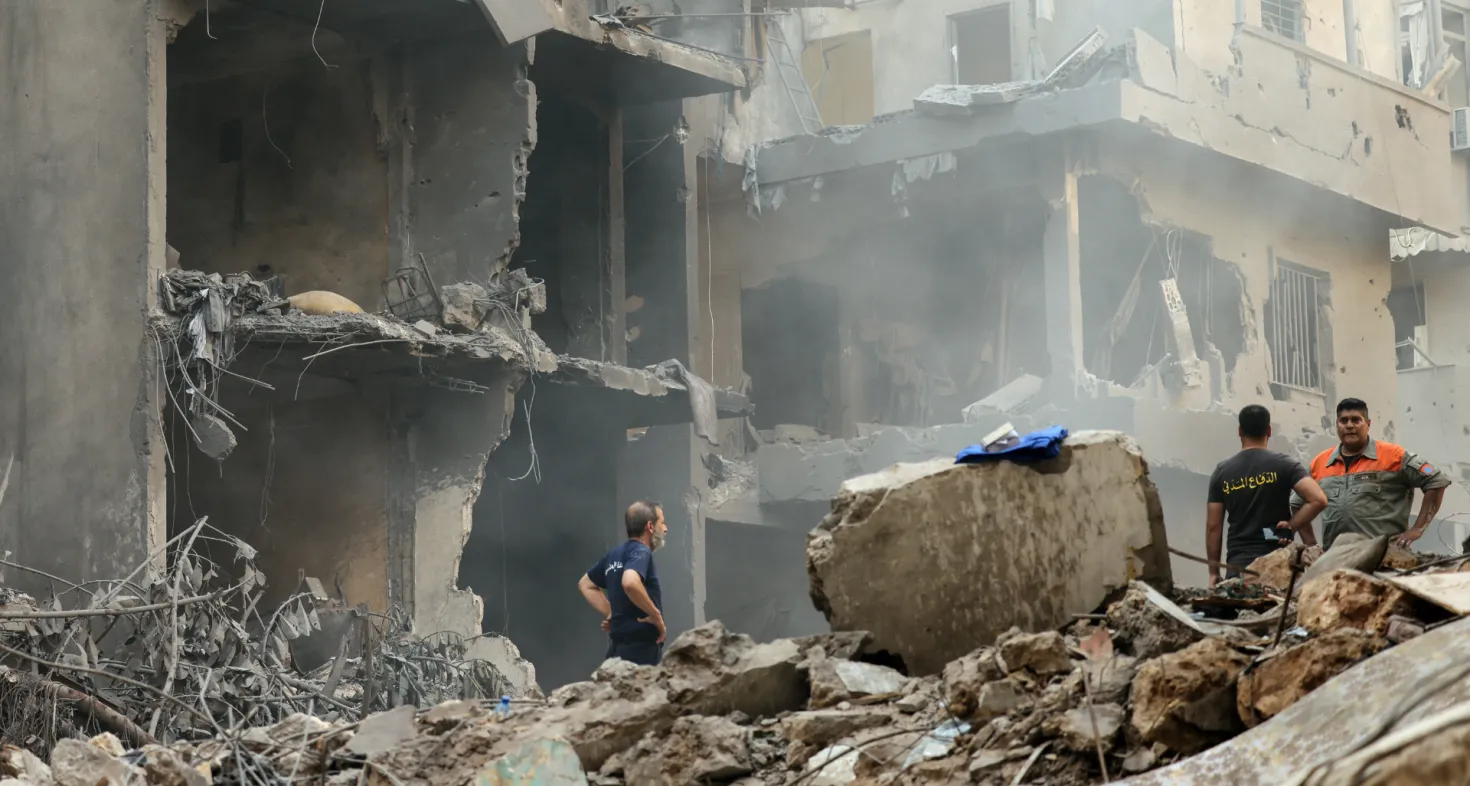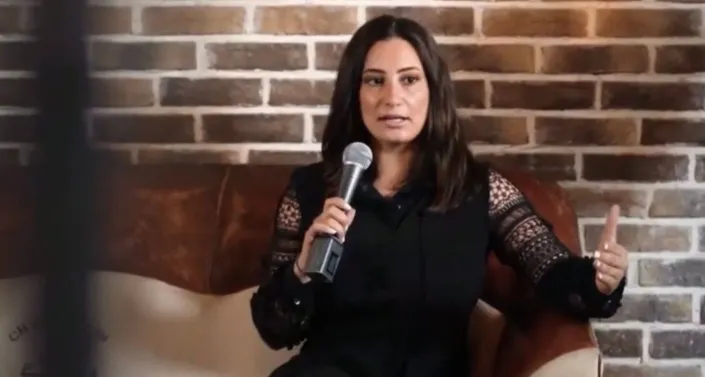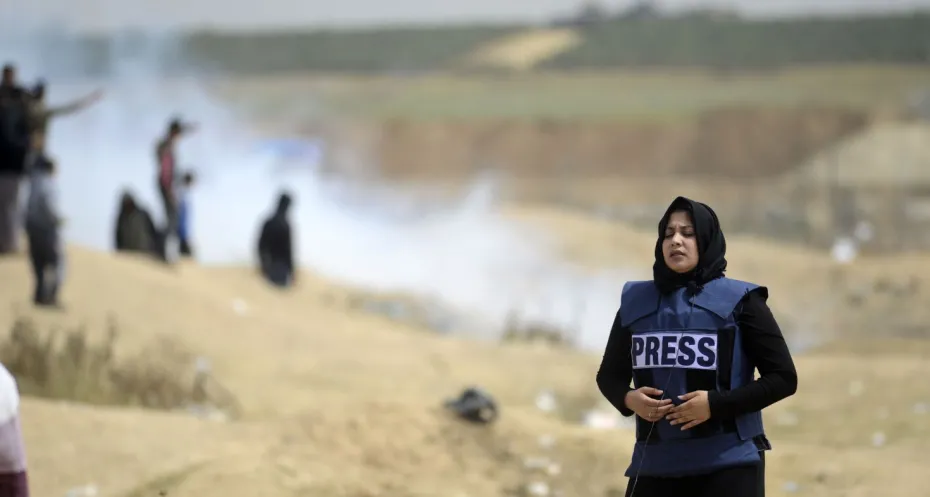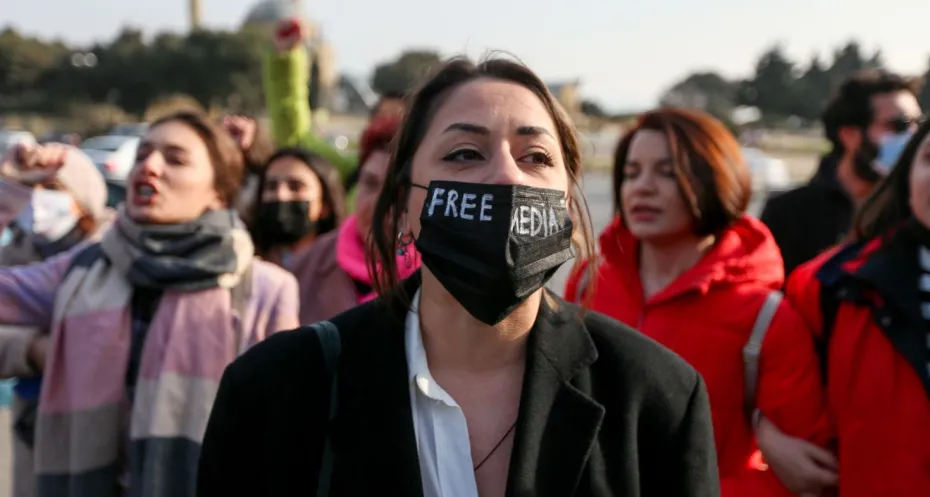
An update from Lebanon: “People need to know what is happening”
We are speaking with Valentine Nesser, Executive Director and Editor in Chief of news outlet Silat Wassel, based in South Lebanon. Valentine lived in southern Lebanon, but due to Israel’s continuous bombing, she had to flee to a safer place last week together with her family. During this straining 15-hour journey, she lost her father to a heart attack. Currently, Valentine is in a safe house with her mother and brother, where she does not lose sight of her goal of bringing independent and reliable news.
When we speak to Valentina through a video call, she is about half an hour's drive from Beirut. The bombs can still be heard and felt from her location. ‘’It is and has been very difficult, but you learn how to cope with it’’, she says. “We settled and started working again. We gain a lot of support from within the organisation. Every colleague goes through the same situation, so we understand and support each other. It's very paradoxical”, she explains. “We report what is happening, while on the other hand we are going through the situation ourselves. What keeps all our colleagues at Silat Wassel motivated, is that we know journalists are the people who can tell the truth about what’s happening. It’s not ‘just a job’ for us, we see it as humanity, as the voice that needs to be heard.”

Silat Wassel gives space to issues related to women, minorities, LGBTQ+, the environment, climate change, and corruption, public affairs, as well as advocating for individuals' rights to freedom of belief, expression, and gender identity. But since the bombing in Beirut they shifted their focus. “We now cover stories about the people who are displaced from their homes, the war, the people who are killed, the children that are left behind”, says Valentine.
She continues: “All colleagues are in a safe-house except for one. He is still in Tyre, the location of the bombing. He operates on the ground and provides updates on the developments to the entire team. We are in constant contact with him and try to give him advice to stay safe, but there is always a risk.” Nevertheless, they continue to make news to provide their audience with independent information. Silat Wassel is a source of news in Lebanon, but also beyond. “We have a wide reach in the Middle East and all those people need to know what is truly going on” says Valentine.
The effect of misinformation
The spread of misinformation is a big threat during a crisis situation. Valentine experiences this first hand right now in Lebanon. “A lot of misinformation is being spread. Especially via Whatsapp in group chats. People receive a fake news message and forward it to their acquaintances, unaware that it is misinformation. These messages are often about where bombings are taking place and are therefore very alarming. It is impossible for us to find out who the source of these messages is and why it is being done. We do our best to fact-check this information, and when we find out it is not true we try to tell people.”
“We don't know if that's really the situation, sometimes it's true and sometimes not. But when you get such a message you are scared and want to leave. It results in chaos.”
The Israeli government also regularly sends messages saying to leave a place or house because it is dangerous, Valentina tells us. “We don't know if that's really the situation, sometimes it's true and sometimes not. But when you get such a message you are scared and want to leave. It results in chaos.”
Valentine wants to highlight to young journalists that their work is of great importance. She hopes that young journalists become aware of the enormous responsibility their profession entails. “Our job is to describe situations as objectively as possible. Especially in times of crisis, when there is a lot of mis- and disinformation. Cooperation with other journalists and organisations is essential here: you need each other to fact-check information. People are scared by all the disinformation and no longer know who and what to believe. Reliable information then provides support and guidance.”
"Our job is to describe situations as objectively as possible. Especially in times of crisis, when there is a lot of mis- and disinformation."
Valentine's drive to keep making news is strong. Despite her own safety and her personal grief, she remains resilient. “People need to know what is happening in the world and it’s my job to do so.”
About our partner Silat Wassel:
Silat Wassel is an online independent media platform, presenting views relevant to South Lebanon and the youth in the Arab world. We empower and support the new generation of journalists in the Arab world, especially journalism and media students in southern Lebanon. Through resources and training that keep up with innovations in journalism of all kinds while adhering to professional standards and ethics. We also work on producing reports and investigative journalism that address issues in the Tyre District in southern Lebanon to enhance local media coverage and youth perspectives in the Arab world.



